English:After another 17 hours on the train from Erlian to Ulaanbaatar, (including 4 hours of being stuck onboard because of the passport check time-consuming process), I had finally arrived in Mongolia, after exactly 22 months and approximately 39000km of journeying overland around the world, through 16 different countries. Mongolia had always been a place I had wanted to go to, with no particular expectation, apart from the idea that a country of three times the size of France for only 3 million inhabitants (including 1.4 million in Ulaanbaatar), had to possess a radiant and unspoilt Nature. I assumed that the unexpectedness that would be triggered by this new chapter of my adventure would be more related to the human experiences. In order to get to Ulaanbaator, I had travelled approximately 9600km in total since my departure from Kathmandu, with roughly 20 hours by bus through Tibet and 140 hours on Chinese trains' second class hard seats, on which I tried to sleep in pseudo yoga positions to maximize the tiny room I had, in the midst of screaming children. I also met a myriad of remarkable people on the train, which was an essential part of my Chinese experience and quite correlated to the "what-there-is-in-between" concept I wrote about in my previous blog post about China. The whole excitement about my presence onboard, among the mass of “lambda” Chinese folks made them feel very proud and it was sometimes almost too intense as photos of me with children and locals were continuously shot from mobile phones and other unknown Asian devices. Furthermore, I could feel the culture and scenery change right away on the way from the border to Ulaanbaatar. Even the train was different, with strong metal Russian-built cars in which the doors must have weighed more than a whole car in other countries, and where you have "real" windows to roll down in order to stick your head outside and feel the air caressing your hair. The Gobi faded away and gave way to the stunning Mongolian colourful grasslands in which your eyes get lost by the limitless horizon. When I arrived in Ulaanbaatar, it was 6 degrees Celsius in the fresh and foggy morning and I had therefore shifted from a subtropical summer into an early Mediterranean winter in less than 24 hours. It is somewhat not something unusual while travelling through Asia but it is very demanding for the body in terms of thermoregulation and homeostasis. I did not have a good feeling with UB (Ulaanbaator) straight away and I had already had the time to walk around the city centre in the drizzle as I was trying to get in touch with my Couchsurfing host, Michelle, from Australia, which was actually my first non-native Couchsurfing host in a foreign country ever. In fact, I never managed to get hold of her in that chilly Mongolian morning so I just sat down on the street near Sukhbaatar square, the main square of the city, sheltered from the rain by the eaves of an old building, and had my breakfast; the leftovers of the train journey, namely 3 boiled eggs. It was 9am and had been in UB for about one hour. I had long learnt to take my time and chill out in this kind of situations, for there is nothing to worry about when we try your best to do something and cannot do anything more about. It is all about being patient and compassionate with regards to the unfolding events. Eventually, for most solutions come to us when we grow able to act and/or react this way, I randomly met two French girls on the street who somewhat knew Michelle, my Australian host, and Dustin, her American flatmate. Well, one must be very stubborn to call that a “coincidence” after I had been in this 1.4-million-inhabitant city for roughly 2 hours and that had talked to less than ten people on my way to the square. More than knowing my host, Camille & Jess provided me with the exact address of the flat and the code to enter the building. However, there was nobody at home when I got there later on but at least I knew I would have a stairway to store my belongings and a somewhat sheltered place to sleep over in case they did not turn up for some reason. One hour later, I was waiting on the bench in a street nearby when I randomly bumped into Dustin, my host’s American flatmate, even though we had never seen each other before. Some may think it must have been just another “coincidence”, in a city where you see almost more foreigners than locals on the streets. No, it just happens all the time when we start paying attention to it, simply because Everything is Connected. Despite the awkwardness of the situation for Dustin did not have the foggiest idea of my arrival, he and the other two Mongolian flatmates kindly accepted me as their guest. Michelle, my “official” Couchsurfing host, did not come back from the countryside until a couple of days later and we were finally delighted to eventually meet each other. For the whole time in UB, they have all made me feel like home, which is a very special feeling to have when one travels for such a long time. I was very grateful to them and the Universe to have put them across my Path. It even made me feel a little nostalgic about the joys and simple things that are so appreciable to share when sharing accommodation with other happy folks and reminded me of the good old time when I used to flat a lot with other people of many different nationalities in New Zealand, Australia, France and the Netherlands. Michelle also took me to a very atypical dance session that some of the Australian expat crew organize in a flat every Tuesday. The event originally started taking place in winter in order to release energy after work when one almost never sees the sun and the temperatures dwell below 0, up to -35 degrees Celsius, for almost 5 months in a row, which might be quite challenging and depressing. The whole concept is about having a new “music master” every week who, in turns, sets her/his own playlist to dance on for about one hour and a half. Then, people just dance and dance and dance just for the sake of it and of nothing else. I found the concept very interesting since at least there is no pressure to socialize, flirt or talk with other people. It did not take me much time to figure out that the cost of living in UB was ridiculously expensive according to the purchasing power and compared to the other countries I had crossed until then. It cost me more money when I went to the supermarket on the first day than what I had spent on food in China in two weeks! Unfortunately, Mongolia is one of these countries in which it is more expensive to cook your own food than to eat on the streets or local restaurants. In addition to that, the whole thing is way to “bling bling” for me. UB is one of these places in which wheel alloys are more expensive than the car itself or where girls think that the more naked they dress, the more pretty they are and therefore the more attention they will get. There is very little room for anything that is not vain and superficial, including their fake Louis Vutton or Chanel handbags. It is also supposed to be the most polluted city in the world in winter, which did not make feel like sticking around for much longer as I had asked myself the question prior to arriving there. Meanwhile, I went to explore the countryside, from the magnificent and inspiring Gobi Desert in the South to the enchanting Taiga and lush green and rainbowed meadows in the North, via the blissful steppes of the Central Plateau. I hitchhiked about 1400 km in two weeks, camping and hiking in the Wild in the meantime, going through epic landscapes worth those of The Lord of the Rings and Dance with Wolves all at once. I was there, utterly alone in the steppes, incarnating John Dunbar for a chapter of this life, washing in creeks, gazing at my bonfire and drowning into the sea of stars at night, inexorably hoping for Two Socks to show up but having visits of the descendants of Genghis Khan instead. I went to the Buddhist temple complex of Hamriid Hiid in the Gobi, which was an amazing experience. It is one of the most powerful world’s energy centres and I could truly feel tingles all over my body, especially when gazing at the sunrise at 4.30am. This is no far-fetched theory since it relates to the electromagnetic field and consciousness grid of our gem of a planet, as well as to the same findings that the genius Nikola Tesla explored one century ago in terms of free and unlimited wireless energy. Of course, his work was suppressed when the US government and bankers who were funding him found out that they would not make any profit out of his concept that could have truly revolutionised the world along with our entire civilisation if it had been made sustainable. The price of public transportation in Mongolia was also inadequately expensive and I wanted to rely on my thumb again, which had not occurred on long distances since Iran, one year and a half before. That was at the time I was hitchhiking all the time and living with no money at all, during which I had the more enchanting experiences that came to me. Finally, I took 80000 Tugrig with me (the equivalent of about 40 US dollars) for the 2 weeks, mainly for the food on the way, which is the money that most tourists are charged on average in one single day in order to travel Mongolia. Nevertheless, there are always other alternatives lurking in a corner of our mind (in case our mind has angles) and I made it differently. It did not deprive me from wearing traditional Mongolian outfits, sleeping in gers (yurts), riding horses in the prairie, visiting reindeer herders, being a shepherd and visiting amazing Buddhist temples and monasteries which, by the way, are greatly influenced by Tibetan Buddhism. When I came back to Ulaanbaatar, M.G. (one of Michelle's Mongolian flatmates who worked as a tour guide) told me that I must be talented to handle such things. I replied that everyone has the same hidden talents and we just fail to unfold them because of being constantly materialistically brainwashed by the influence of the West. In fact, I think that it has nothing to do with talent at all and that it is all about intuition, opening our Heart and going with the Flow of all things. Again, it is always when we start letting go of everything and not worrying about anything that every and each single element smoothly falls into place exactly as it should be, in the very way that suits us best at that very moment of our lives. People wise, they were not as hospitable and helpful as in India, Nepal and China but the whole thing remained very interesting. I met many random people on my way in the Gobi and also when I was hitchhiking to Lake Hovsgol in the North, presumably the second oldest lake of the planet after its sibling Lake Baikal, created by the same tectonic forces millions of years ago. In Bulgan, I met a lovely shepherd called Amraa. I had given him a free Reiki session on the train in order to fix one of his fingers that was badly injured and was invited to stay with him and his family in the rural outskirts of the town. When I met them, I felt a tremendous connection; the type that cannot be verbalized, as it had already occurred a few times since I left France, as soon as I realized that the whole Voyage would be overall more spiritual than geographical. It was a strong feeling of reminiscence and past life connection as it had already been the case with a few people I met along the way throughout my life. For I assume that everything is intimately connected, I also met up again with my friend Maurice in UB before I left for my trip since he was there at the same time for one day. A couple of hours later, I randomly bumped into Franz on a street, the Austrian guy of the train in Tibet. Then, the two of us spent the evening together in a theatre as we were invited by Michelle to a sumptuous show of Mongolian traditional music. After that, I picked up my Russian visa when I came back to UB after my hitchhiking trip. I got sorted very easily regarding this matter contrary to what I was told beforehand. Let’s also say that I met the “right” people at the “right” time. I was then all set to go to Lake Baikal the following week and could just relax in UB and enjoy my flatmates for a few days, before embarking on what would presumably be a very long and intense hitchhiking journey all the way to Vladivostok, for about 30 days and 5000km. From Vladivostok, the idea would be to find a boat to Japan and to settle there for a little while and the time to recharge the batteries. Throughout months of thoroughly doing my own research, I had found out that it would be the smartest option to choose. Then, I would see how it goes and go with the flow as always. I would get more opportunities to camp and hike in the middle of nowhere and to meet amazing locals, far away from mass tourism. My Voyage is well worth it thanks to these extraordinary elements that take place permanently...on an impermanent basis. That is, I believe, what we were all born for, even though it applies to each and every of us in diverse social and geographical contexts. “Carpe... Hear it? Carpe... Carpe diem. Seize the day, boys. Make your lives extraordinary.” John Keating (Robin Williams), Dead Poets Society French:Après 17 nouvelles heures de train de Erlian à Oulan-Bator, (dont 4 heures à être coincé à bord en raison d’une vérification de passeport de longue haleine), j'étais enfin arrivé en Mongolie, après exactement 22 mois et environ 39000 kilomètres de cheminement terrestre autour du monde, à travers 16 pays différents.
La Mongolie avait toujours été un endroit où je voulais aller, sans attente particulière, en dehors de l'idée qu'un pays de trois fois la taille de la France pour seulement 3 millions d'habitants (dont 1,4 million à Oulan-Bator), devait forcément posséder une nature rayonnante et préservée. Je suppose que le côté imprévu qui serait déclenchée par ce nouveau chapitre de mon aventure serait plus lié aux expériences humaines. Pour arriver à Oulan-Bator, j'ai parcouru environ 9600 km au total depuis mon départ de Katmandou, avec environ 20 heures de bus à travers le Tibet et plus de 140 heures à ambuler sur sièges durs de seconde classe des trains chinois, sur lesquels j'ai essayé de dormir dans des pseudo positions de yoga pour maximiser l’espace restreint que j'avais dans ce but, au milieu des incessants cris d'enfants. J'ai aussi rencontré une multitude de gens remarquables dans le train, ce qui fut une partie essentielle de mon expérience chinoise, très corrélée au concept de «ce qui existe au milieu » à propos duquel j'ai écrit dans mon post précédent sur la Chine. Ma présence à bord, dans la masse des individus "lambda" chinois, a souvent créé une excitation générale rocambolesque et les a fait se sentir très fier. Ce fut parfois presque trop intense sachant que des photos de moi avec les enfants et les locaux étaient prises en rafale à partir de téléphones portables et autres mécanismes asiatiques inconnus. En outre, je pouvais sentir le changement de paysage et de culture dès la frontière puis sur la route vers Oulan-Bator. Même le train était différent, avec des wagons en fonte de fabrication russe, dans lesquelles les portes devaient peser plus que tout un wagon dans d'autres pays, et où il fut possible de profiter de « vraies » fenêtres qui pouvaient être ouvertes pour sortir la tête et sentir l'air caresser vos cheveux. Le Gobi disparut et céda sa place aux magnifiques prairies colorées où les yeux se perdent dans un horizon sans frontières. Quand je suis arrivé à Oulan-Bator, il faisait 6 degrés au petit matin frais et brumeux et j'étais donc passé d'un été tropical à un début d’hiver méditerranéen en moins de 24 heures. Ceci n’est pas quelque chose d'inhabituel lors d'un voyage à travers l'Asie, mais il s’agit de quelque chose de très exigeant pour le corps en termes de thermorégulation et d’homéostasie. Je n'ai pas eu un bon feeling avec UB (Oulan-Bator) tout de suite et déjà eu le temps de marcher autour du centre-ville dans la bruine alors que je tentais d'entrer en contact avec mon hôte Couchsurfing, Michelle, australienne, qui était en fait mon premier hôte Couchsurfing non originaire du pays étranger traversé. En fait, je n'ai jamais réussi à lui mettre la main dessus en ce matin mongol plutôt frisquet et je me suis donc assis dans la rue près de la place Sukhbaatar, la place principale de la ville, à l'abri de la pluie par l’avant-toit d'un ancien bâtiment, où j’ai mangé mon petit-déjeuner ; les restes de mon voyage en train, à savoir 3 œufs à la coque. Il était neuf heures du matin et étais à UB depuis environ une heure. J'avais depuis longtemps appris à prendre mon temps et me détendre dans ce genre de situations, car il n'y a pas à se soucier de quoi que ce soit quand on essaye du mieux que l’on peut d’arriver à ses fins et qu’il n’y a rien d’autre à faire de plus. Il s'agit de faire preuve de patience et de compassion à l'égard du déroulement des événements. Finalement, quand la plupart des solutions viennent à nous quand nous commençons à agir et réagir de cette façon, j'ai rencontré au hasard deux filles françaises dans la rue qui connaissaient Michelle, mon hôte australienne, et Dustin, son colocataire américain. Je pense qu’il faudrait être très têtu pour appeler cela une "coïncidence" après avoir été dans cette ville de 1,4 millions d'habitants pendant environ deux heures et avoir parlé à moins de dix personnes sur le chemin de la place. Plus que de connaitre mon hôte, Camille & Jess m'ont fourni l'adresse exacte de l'appartement et le code d’entrée du bâtiment. Cependant, il n'y avait personne chez eux quand je suis arrivé mais je savais au moins que j'aurais un escalier pour y stocker mes affaires et un endroit un peu abrité pour dormir au cas où ils ne rentreraient pas pour une raison quelconque. Une heure plus tard, alors que j’attendais sur un banc d’une rue voisine, je suis tombé par hasard sur Dustin, le colocataire américain de mon hôte, bien que nous ne nous soyons jamais vus auparavant. Certaines personnes pourraient penser que cela devait être juste une autre «coïncidence», dans une ville où l'on voit presque plus d'étrangers que de locaux dans les rues. Non, cela arrive tout le temps quand on commence à y attacher de l’importance, tout simplement parce que tout est lié. Malgré l’étrangeté de la situation, sachant que Dustin n'avait pas la moindre idée de mon arrivée, lui et ses deux autres colocataires mongoles m'ont gentiment accepté parmi eux. Michelle, mon hôte "officielle" de Couchsurfing, est revenue de la campagne quelques jours plus tard et nous étions heureux de finalement pouvoir se rencontrer. Pendant l’ensemble de mon séjour sur UB, ils m’ont tous fait me sentir comme chez moi, ce qui est toujours un sentiment très spécial quand on voyage pour une si longue période. J'ai été très reconnaissant envers eux et envers l'Univers de les avoir mis sur mon chemin. Michelle m’amena également à une séance très atypique de danse que certains des expats australiens organisent dans un appartement tous les mardis. A l'origine, l’évènement commença à se mettre en place en hiver afin de libérer de l'énergie après le travail quand le soleil ne se laisse presque jamais voir et quand les températures sont en dessous de 0 et jusqu'à -35 degrés pendant près de cinq mois d'affilés, ce qui peut être parfois très difficile et déprimant. L'ensemble du concept se situe au niveau d'avoir un nouveau «maître de musique» chaque semaine qui, à son tour, mis son/sa propre playlist pour danser, pendant environ 1h30. Puis, les gens dansent, dansent et dansent juste pour le plaisir de le faire et de rien d'autre. J'ai trouvé le concept très intéressant sachant qu’il n'y existe aucune pression de socialiser, flirter ou de parler avec d'autres personnes. Il ne m'aura pas fallu beaucoup de temps pour comprendre que le coût de la vie sur UB était ridiculement cher par rapport pouvoir d'achat local en comparaison aux autres pays que j'avais traversés jusque-là. Ça m'a coûté plus d'argent quand je suis allé au supermarché le premier jour que ce que j'avais consacré à l'alimentation en Chine en deux semaines! Malheureusement, la Mongolie est l’un de ces pays où il est plus coûteux de cuisiner sa propre nourriture que de manger dans les rues ou restaurants locaux. En plus de cela, l’ensemble est bien trop "bling bling" pour moi. UB est l’un de ces endroits où les alliages de roues sont plus chers que la voiture elle-même ou où les filles pensent que plus elles se dénudent, plus elles sont jolies et donc plus elles obtiendront d’attention. Il n’y a que très peu de place pour tout ce qui n'est pas vain et superficiel, y compris leur faux sacs à main Chanel ou Louis Vuitton. UB est également censée être la ville la plus polluée du monde en hiver, ce qui ne m’a pas donné l’envie de rester dans les parages pendant beaucoup plus longtemps, sachant que je m'étais posé la question avant d'y arriver. Entre temps, je suis allé à la découverte de la campagne mongole, depuis le magnifique et inspirant désert de Gobi dans le sud jusqu’à la taïga enchantée et ses prairies luxuriantes remplies d’arcs en ciel dans le Nord, en passant par la paisibilité des steppes du Plateau Central. J'ai fait du stop sur 1400 km pendant deux semaines, du camping et de la marche à son état le plus sauvage entre temps, en passant au travers de paysages épiques ressemblant à la fois à ceux du Seigneur des Anneaux et de Danse avec les loups. J'étais là, complètement seul dans les steppes, à incarner John Dunbar pour un chapitre de cette vie, à me laver dans les ruisseaux, perdre mon regard dans mon feu de camps et me noyer dans la mer des étoiles la nuit, espérant inexorablement que Chaussettes vienne à ma rencontre, mais ayant à la place quelques visites des descendants de Gengis Khan. Je suis allé au temple bouddhiste de Hamriid Hiid dans le désert de Gobi, qui fut une expérience tout à fait incroyable. Il s’agit de l'un des centres d'énergie terrestre les plus puissants du monde et je pouvais réellement ressentir des picotements dans tout le corps, en particulier en contemplant le lever du soleil à 4h30 du matin. Ceci n'est pas une théorie tirée par les cheveux dans le sens où ce lieu est connecté avec la grille électromagnétique de notre joyau de planète, ainsi qu’avec les mêmes conclusions que le génie Nikola Tesla avait élaborées il y a plus d’un siècle en matière d’énergie sans fil gratuite et illimitée. Bien entendu, son travail fut anéanti lorsque le gouvernement américain et certains banquiers qui l’avaient financé découvrirent qu'ils ne pourraient pas tirer profit de son concept qui aurait vraiment pu révolutionner le monde, ainsi que toute notre civilisation, si il avait été mis en place durablement. Le prix des transports en commun en Mongolie est également très onéreux et je voulais ainsi compter à nouveau sur mon pouce pour voyager, ce qui ne s'était pas produit sur de longues distances depuis l'Iran, un an et demi auparavant. C'était à l'époque où je faisais de l'auto-stop tout le temps et vivais sans argent du tout, au cours de laquelle j'ai vécu parmi les expériences les plus « miraculeuses » de mon épopée jusqu’à présent. Du coup, j'ai pris 80000 Tugrig avec moi (l'équivalent d'environ 40 dollars US) pour les deux semaines, principalement pour la nourriture sur le chemin, ce qui est plus ou ;oins le budget que la plupart des touristes paient en moyenne en une seule journée pour voyager en Mongolie . Néanmoins, il ya toujours d'autres alternatives tapies dans un coin de notre esprit (au cas où notre esprit serait carré) et j’ai procédé différemment. Cela ne m’a pas privé de porter des tenues traditionnelles mongoles, dormir dans des yourtes, faire du cheval dans les steppes, visiter des éleveurs de rennes, devenir moi-même berger et visiter des temples et monastères bouddhistes fascinants, qui, par ailleurs, sont fortement influencés par le bouddhisme tibétain . Quand je suis revenu à Oulan-Bator, M.G. (l'une des deux colocatrices mongoles de Michelle qui travaille en tant que guide) m'a dit que je devais avoir du talent pour gérer ce genre de situations. Je lui ai répondu que tout le monde possède les mêmes talents cachés mais le problème est que nous ne parvenons pas à les exploiter pleinement à cause d'être constamment dans une perspective matérialiste et du lavage de cerveau induit par l'influence de l'Occident. En fait, je pense que cela n'a rien à voir du tout avec le talent et que tout se situe au niveau de l'intuition, l'ouverture de notre cœur et de se laisser aller avec le mouvement naturel de toute chose. Encore une fois, c’est toujours quand nous commençons à « lâcher prise » et ne pas se soucier de quoi que ce soit que chaque élément se met en place en douceur exactement comme et où il devrait être, de la manière qui nous convient le mieux à ce moment là de notre vie. En ce qui concerne la population locale, j’ai trouvé que les gens n'étaient pas aussi accueillants et serviables comme en Inde, le Népal et la Chine, mais le tout reste très relatif et surtout très intéressant. J'ai rencontré beaucoup de monde au hasard sur mon chemin dans le désert de Gobi et aussi quand je faisais de l’auto-stop vers le Lac Hovsgol dans le Nord ; le deuxième lac le plus ancien de la planète après son frère le lac Baïkal, créé par les mêmes forces tectoniques il y a quelques millions d'années, environ 190km au Nord-est. A Bulgan, j'ai rencontré un berger nommé Amraa. Je lui avais donné une séance de Reiki dans le train afin de soigner un de ses doigts qui était grièvement blessé et m’a invité à rester pendant quelques jours avec lui et sa famille dans la banlieue rurale de la ville. Quand je les ai rencontrés, j'ai senti tout de suite une énorme connexion; le genre de connexion qui ne peut pas être vraiment verbalisé, comme cela avait déjà eu lieu à plusieurs reprises depuis que j'avais quitté la France, à partir du moment où j'ai réalisé que tout le voyage aurait globalement une connotation plus spirituelle que géographique. Ce fut un sentiment étrange de réminiscence et de connexion avec des vies passées comme cela a déjà été le cas avec quelques personnes que j'ai rencontrées le long du chemin tout au long de ma vie. Etant donné que tout est intimement lié, j’étais ravi de revoir mon ami Maurice à UB avant mon départ car il était là en même temps que moi pour une journée. Quelques heures plus tard, je suis tombé sur Franz au hasard dans la rue, l’autrichien avec lequel Maurice et moi avions pris le train au Tibet. Ensuite, Franz et moi passèrent la soirée ensemble au théâtre car nous fumes invités par Michelle à un spectacle somptueux de musique traditionnelle mongole. De plus, j'ai récupéré mon visa russe quand je suis revenu sur UB après mon périple en stop. Je m’en suis très bien sorti à ce niveau, contrairement à ce qu'on m'avait dit en cours de route. Disons aussi que j'ai rencontré les «bonnes» personnes au « bon » moment. J’étais fin prêt pour me diriger vers le lac Baïkal la semaine suivante et avais juste à me relaxer sur UB et profiter de mes colocataires pendant quelques jours, avant de se lancer dans ce qui serait sans doute un très intense et fastidieux voyage en stop jusqu’à Vladivostok, pour environ 30 jours et 5000 km. Depuis Vladivostok, l'idée serait de trouver un bateau pour le Japon et de s'y installer pour un petit moment, le temps de recharger les batteries. Au cours des mois passés à faire ma propre recherche, j'ai réalisé que ce serait l'option la plus pertinente à choisir. Ensuite, je verrais bien comment ça se passerait au fil du temps, comme toujours. Ce qui est certain, c’est que j’aurais encore plus de possibilités de camper et marcher au milieu de l’Inconnu, et à rencontrer des gens incroyables, loin du tourisme de masse. Mon voyage en vaut la peine grâce à ces éléments extraordinaires qui prennent place en permanence...sur une base d’Impermanence. Il s’agit, je crois, de ce que nous sommes tous nés pour faire, même si cela s'applique à chacun d’entre nous dans des contextes sociaux et géographiques divers et variés. « Carpe… Vous entendez? Carpe…Carpe Diem. Profitez de chaque instant, les garçons. Rendez vos vies extraordinaires. » John Keating (Robin Williams), “Dead Poets Society”
0 Comments
|
Nicolas GennaJourney around the world overland since 2012. Categories
All
|
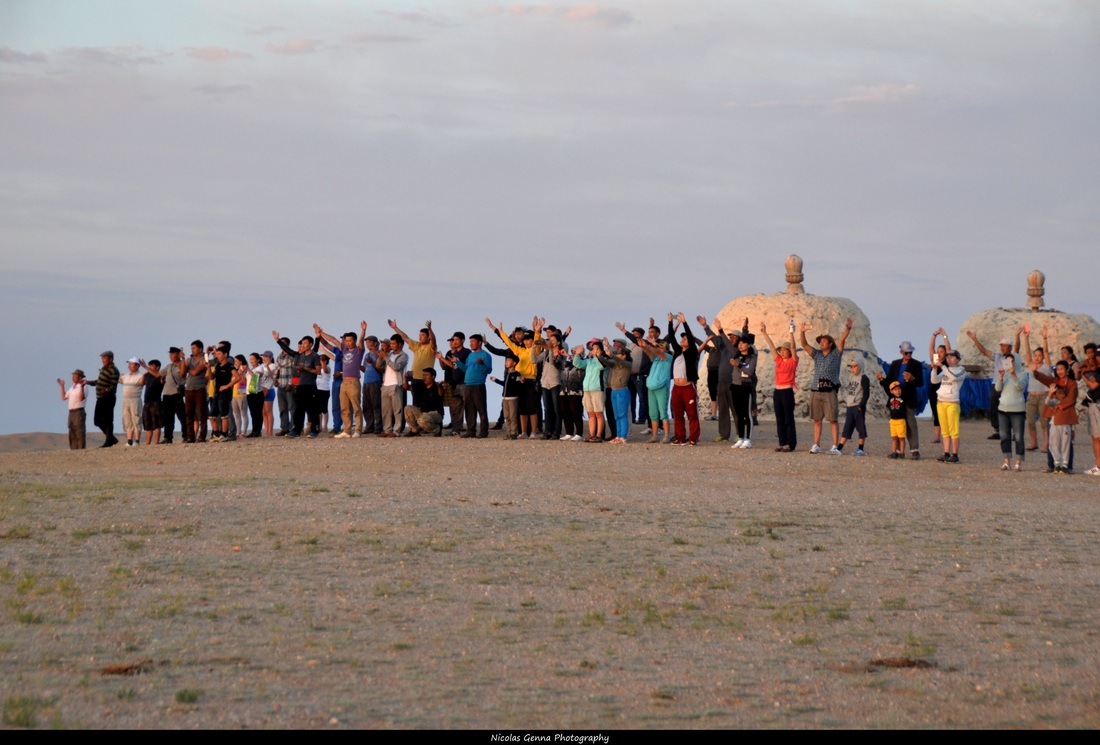

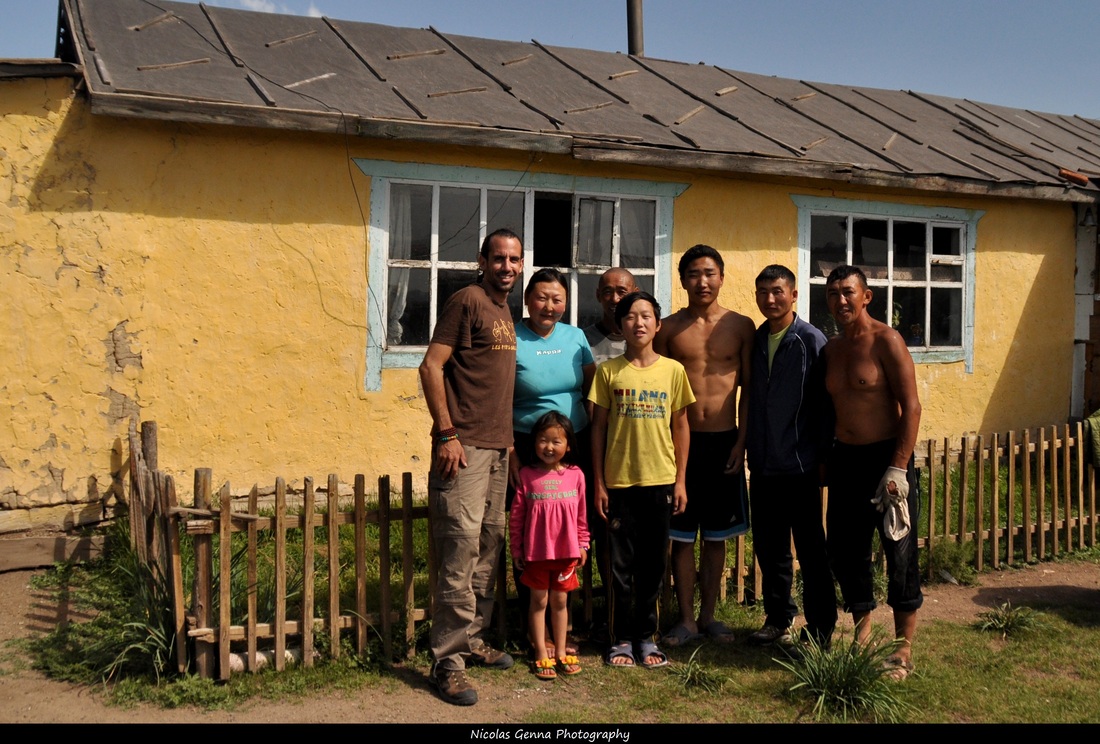
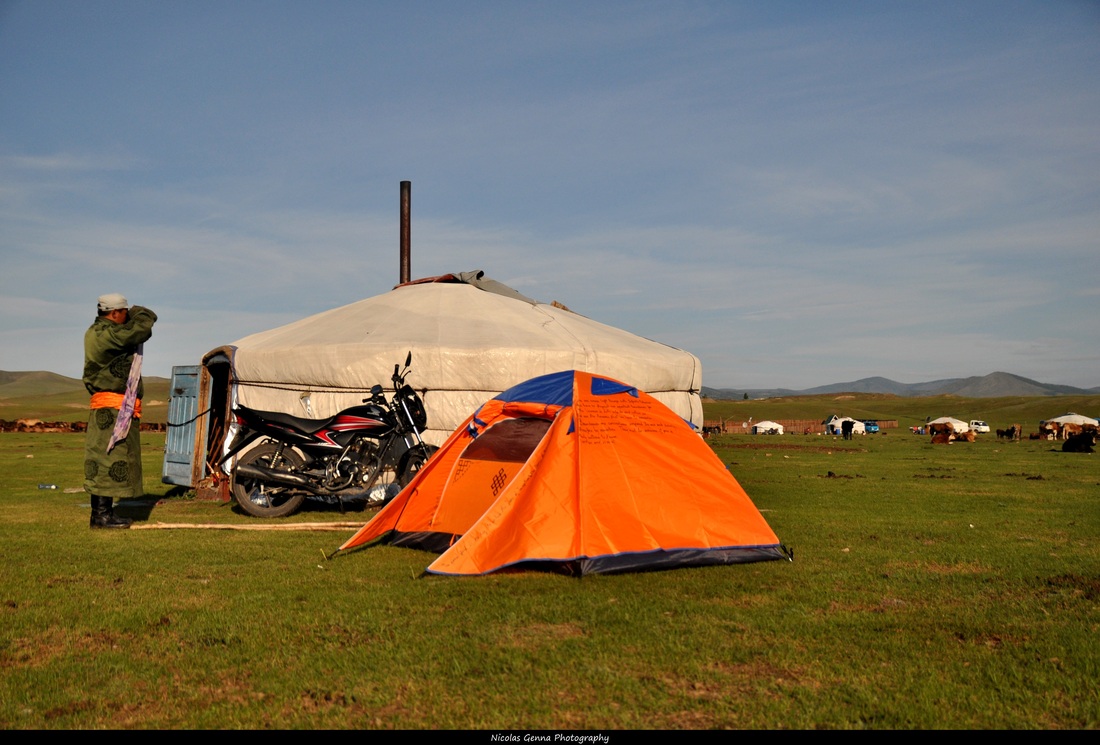
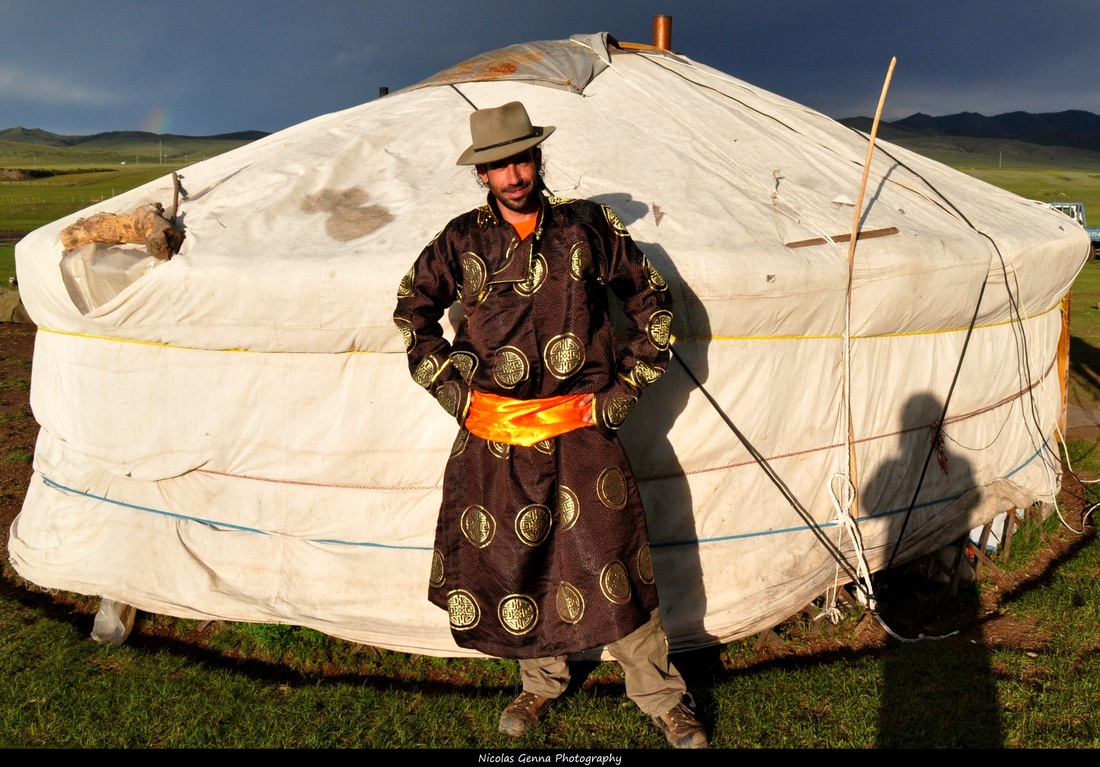
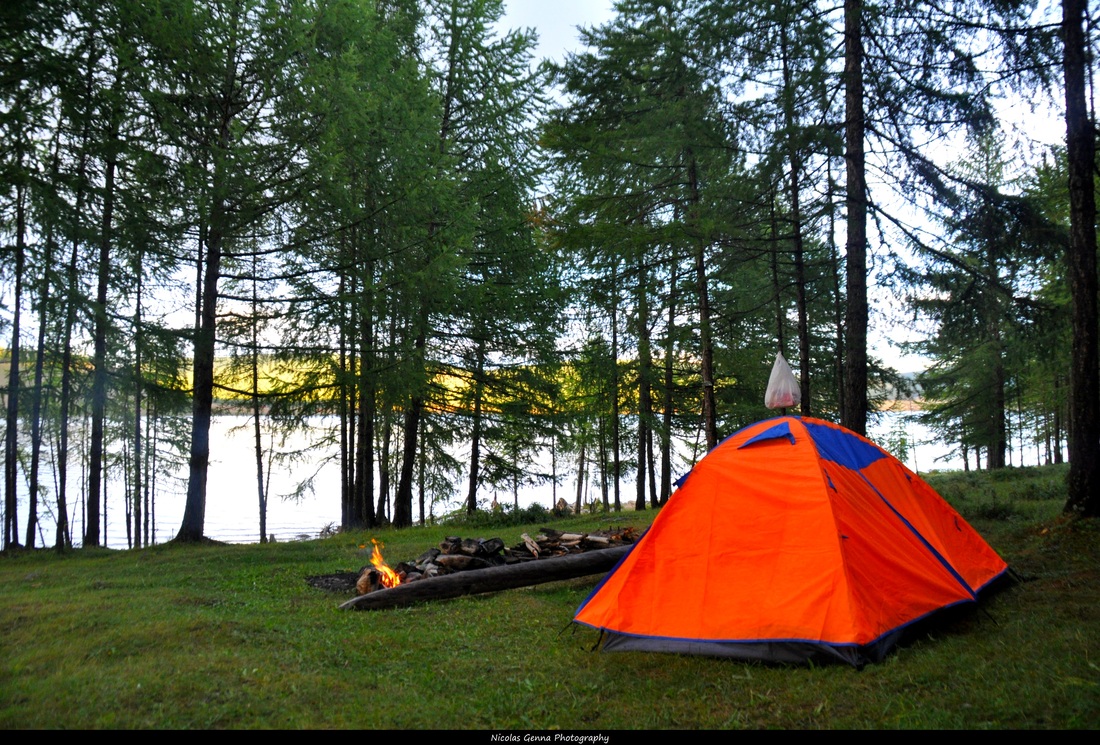
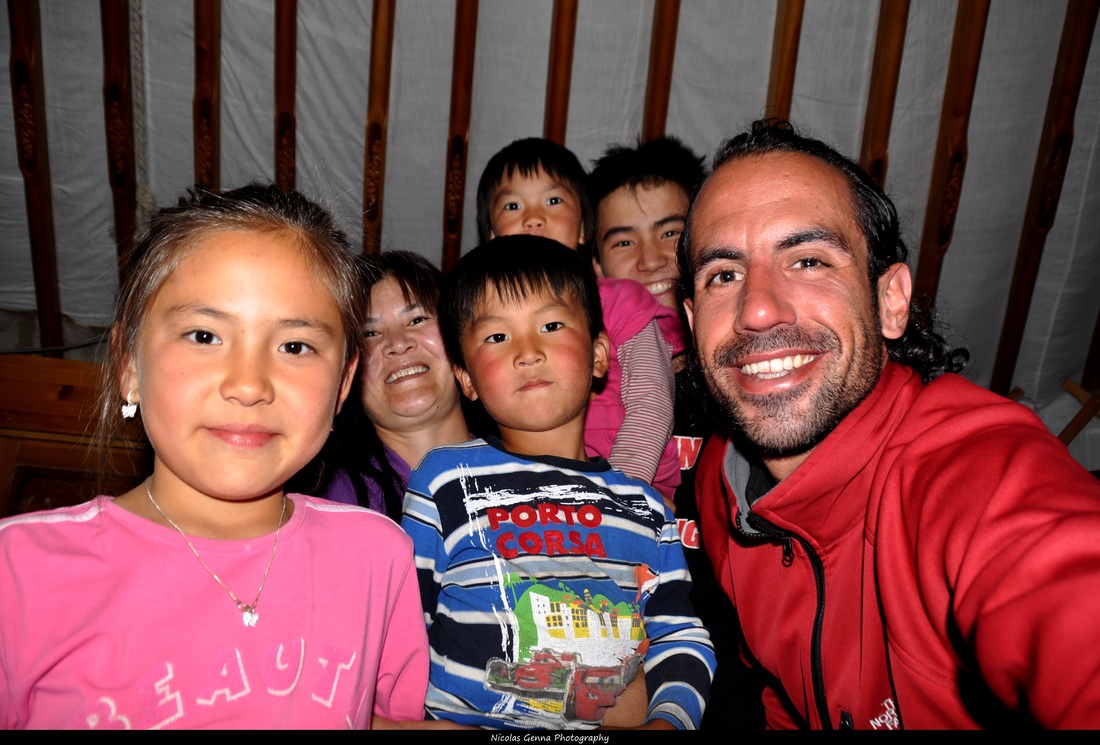
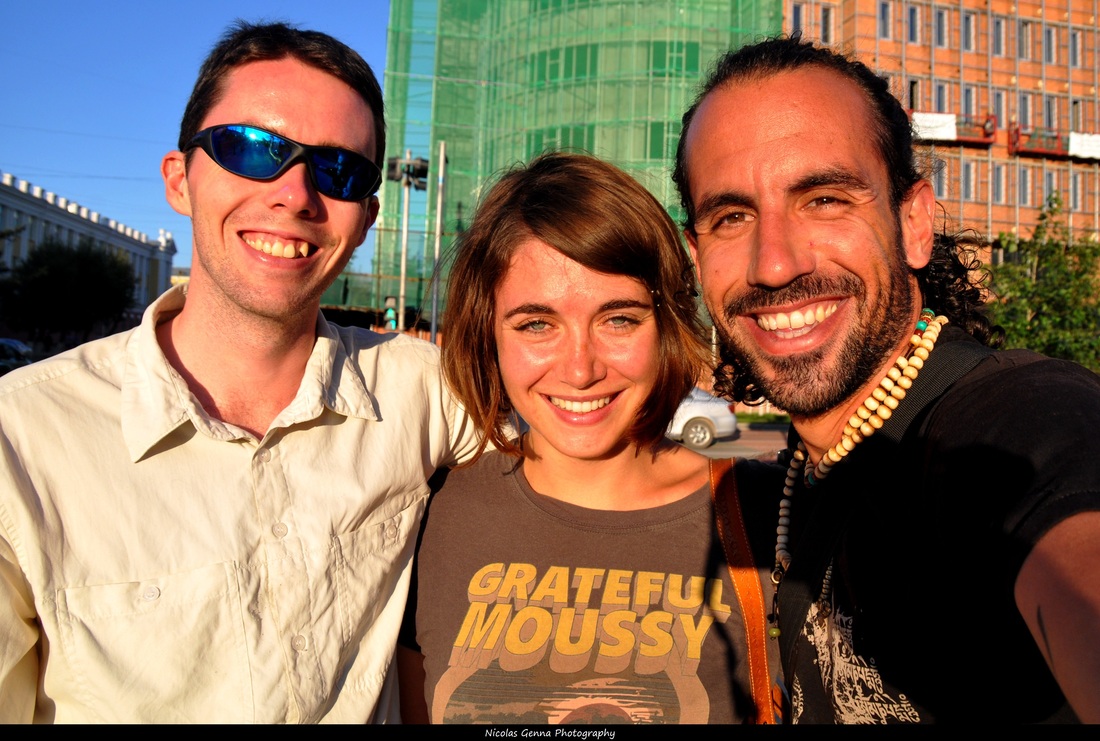
 RSS Feed
RSS Feed
